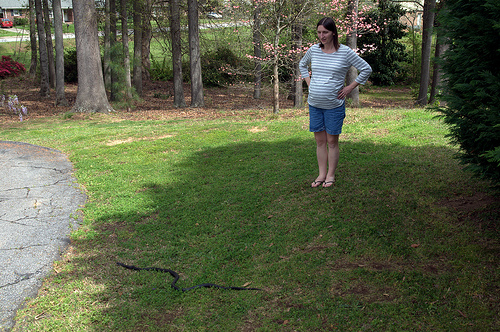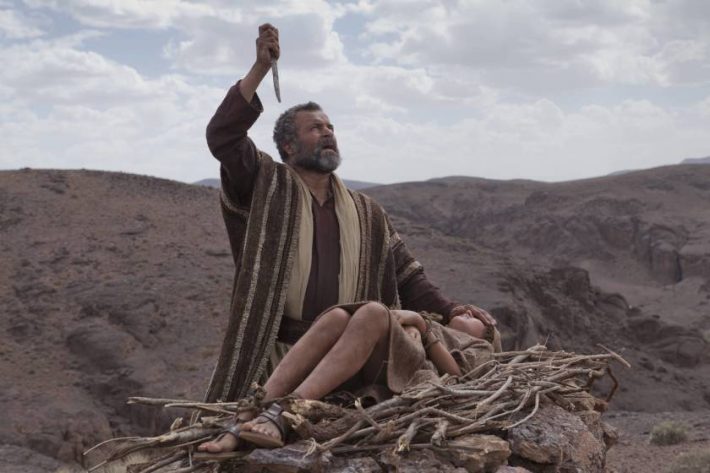Saturday has a morning ritual that never changes. It begins with some Skyping to Babcia and Dziadek in Poland. The Girl carries on two-thirds in English, a bit in Polish, and the rest in squeals and laughs. Ballet follows, with me heading to a nearby McDonald’s for a coffee and some paper grading. Returning home, it’s time for polski cwiczenia, Polish practice. Saturday after Saturday it’s the same, in ordinary time, Advent, Lent, or Easter.

A five-foot visitor in our backyard, though, is hardly an every-Saturday occurrence. If it were, I think we might be seeing less of Nana (and, by proxy, Papa).

A black rat snake Pantherophis obsoletus, this fellow came slithering along our side yard, and I noticed him just as he was winding his way among the Leyland cypresses that shield our deck from neighboring yards.

K was simultaneously fascinated and repulsed, wondering aloud whether I should kill it.
“Of course not!” I declared. “This guy eats rats, mice, chipmunks, squirrels, and a host of other things I’d gladly do without.” But as a compromise, I took a pitchfork and scooted him down to the edge of our property where he promptly wound his way into an extremely large azalea, curling around the branches until it was four or so feet in the air.

Returning to the upper part of our yard, I discovered some moss that appears to have sprouts. First a snake, then odd moss — who knew what else might come our way.

Yes, a very tenuous Lenten connection. Still, one can’t say I didn’t try.
 Lent is about sacrifice, and a significant part of our everyday reality is sacrifice in the form of delayed gratification, when we sacrifice the immediate satisfaction of our desires for some further, greater good. For example, we could buy that new camera lens we want (and I have been drooling over Nikon’s 17-55 2.8 for some time) on credit and have immediate gratification; delaying said gratification by saving for the lens (and at $1,500, that particular lens would take quite a bit of saving of my personal spending money) means not racking up unnecessary debt that could hurt us in the long run. So we delay gratification for a good that is even further in the distance, and in this case, hypothetical. But the immediate price is a sacrifice of potential joy.
Lent is about sacrifice, and a significant part of our everyday reality is sacrifice in the form of delayed gratification, when we sacrifice the immediate satisfaction of our desires for some further, greater good. For example, we could buy that new camera lens we want (and I have been drooling over Nikon’s 17-55 2.8 for some time) on credit and have immediate gratification; delaying said gratification by saving for the lens (and at $1,500, that particular lens would take quite a bit of saving of my personal spending money) means not racking up unnecessary debt that could hurt us in the long run. So we delay gratification for a good that is even further in the distance, and in this case, hypothetical. But the immediate price is a sacrifice of potential joy.

























